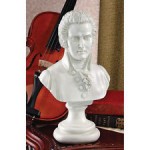YouTube Transcription #6 Victor Borge
Victor Borge (1909-2000) was a Danish comedian and pianist. He did most of his work in English, though. He specialised in classical music comedy. There are many videos of his performances on YouTube. He often liked to joke that he disliked opera, especially sopranos. Below is an example of this.
Borge: What is that following you? Oh!
Marilyn has decided to sing… Marilyn is a ‘cagalatura’ (coloratura) and has decided to sing… as a matter of fact, I wonder what you are going to sing for us tonight. Something not too long, I mean, not that I don’t enjoy music and your singing… what happened to your arms? Come to think of Mozart there, for a minute. He was from here up, you know… What have you decided Marilyn?
Marilyn: Yes, tonight I’d like to sing the Caro Nome from Rigoletto.
Borge: Oh, god! Thank you. Hands off, please. Hands off. Marilyn will sing the Kagami, the what?
Marilyn: Caro Nome.
Borge: The Kaganomi from the opera Rigor Mortis, by, er… by all means. Who wrote that opera, please?
Marilyn: Giuseppe Verdi.
Borge: Why? I mean, yes… why yes! Indeed. Giuseppe Verdi. Joe Green to you!
I have a problem with this. Ha, ha, ha.
Pardon? Of course not, has, ha, ha. she said “Don’t hum along.” Why should I hum along? I mean… hands off please. Marilyn has, she has a habit of leaning against pianos, and it’s not such a very good habit because sometimes there might not be a piano next to you. You wind up on the floor, or a flute player. Just remember that. READY? OK, sister, here we go.
Finished?
Oh shut up!
We do have an agreement – she doesn’t touch my piano, I don’t lay hands on he coloratura.
You just said that!
I thought you had that fixed!
Expressions used:
He mentioned Mozart. Well he is joking that her clothing looks like a bust of Mozart – a statue of only his head, shoulders and chest.


The joke “…by, er, by all means,” is a play on words. He intends to say “By Verdi” but he had to change as he had forgotten the composer, so he said “by all means.”
He said, “Why yes!”. In English we sometimes say “Why yes!” or “Why no!” to mean “Of course!” or “Of course not!”. He used it as an escape after wondering aloud why Verdi wrote that opera. He is joking that he doesn’t like opera.
